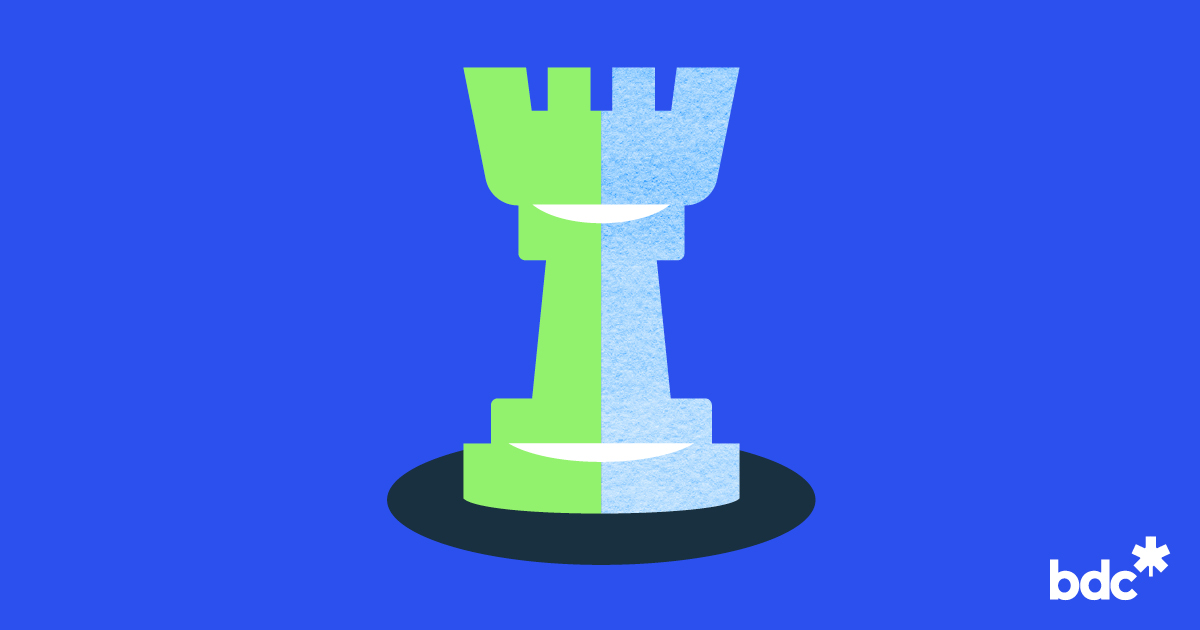Best Accounting Software for Small Businesses for October 2024
:max_bytes(150000):strip_icc()/GettyImages-1442731807-de72b6667831444298d539e63d58693f.jpg)
| Company | Price | Key Features | Integrations | Trial Offer |
|---|---|---|---|---|
| QuickBooks Online Best Overall | $35 (monthly) and up | Scalable; widely used by accounting pros | Yes; multiple | Save 50% for 3 months |
| Xero Best for Micro-Business Owners | $15 (monthly) and up | Feature-rich for smaller businesses at low cost | Yes | 30-day free trail |
| FreshBooks Best for Service-Based Businesses | $19 (monthly) and up | Rich invoicing and proposal tools | Yes | 50% off for 6 months |
| QuickBooks Solopreneur Best for Part-Time Freelancers | $20 (monthly) and up | Easily separates personal and business expenses; integrates with Intuit tax apps | Yes | Save 50% for 3 months or free 30-day trial |
| Wave Best Free Software | Free, or $16 monthly | Feature-rich free accounting; payments processing for a fee | Limited | Free edition |
What Is Accounting Software for Small Business?
Accounting software packages are specialized computer programs that help businesses track invoices, generate reports, and record and report financial transactions. Large firms may choose complex, customized accounting software packages that track inventory, manage accounts payable and accounts receivable, and handle payroll. For smaller businesses, off-the-shelf packages like those highlighted here can accomplish most or all of the firm’s accounting needs.
Accounting software reduces the amount of time spent on manual data entry by allowing users to sync their business bank accounts and credit cards with the software. Once synced, bank transactions flow into the accounting software, which can be categorized into various accounts. This process can also reduce human error and make a time-consuming task more efficient.
Most accounting software is easy to use, but a general understanding of accounting practices will help ensure that financial reports are prepared correctly. For this reason, many small business owners hire bookkeepers or accountants to maintain or review their books. Cloud-based accounting software allows businesses to share their accounting data with their bookkeepers or accountants.
Many accounting software packages allow third-party application integrations. For example, if a business owner uses a point of sale (POS) system to capture sales transactions, the POS system could integrate with the accounting software to record specific transactions, sales tax liabilities, sales by subcategories, and more. In a service-based business, a time-tracking application could integrate with the accounting software to add labor to a client invoice.
What Can Accounting Software Do for a Small Business?
Accounting and accounting software can often seem like dull chores that distract from the “real work” of running and growing a business, like marketing or sales or delivering your product or service. However, avoiding accounting can be a mistake, especially for businesses that have grown beyond the “micro-business” stage.
Accounting software can make the process more efficient and less tedious. And it can help your business in other, more strategic ways:
- A broader view of business performance: Your accounting software can show where your company stands financially, help you develop goals, and track your progress toward them.
- Simplified reconciliation processes: Reconciling bank transactions or matching vendor invoices against payments can be tricky. Accounting software can help you do it more efficiently.
- Better cash flow management: Greater insight into your financial situation overall also means a better view of cash flow and how to manage it.
- Identification of profitable (and unprofitable) clients and practices: Accounting software can show you which clients and business segments are most profitable and which are not so that you can prioritize your resources accordingly.
How to Set Up Small Business Accounting Software
Generally speaking, the software discussed here is easy to install and set up. You can spend a few minutes creating a basic small business accounting system. You’ll add income and expense accounts, a few clients and vendors, and begin tracking income and expenses. Later, you can add more details—vendors, clients, accounts—on the fly as you process transactions and invoices. You can also spend several hours adding these details from the start.
Most packages integrate with bank, credit, and investment accounts and pull transactions automatically; you must provide the login details. If you’re uncomfortable with that level of integration, you can stick with manual transaction input.
Most small business accounting software can import spreadsheets, which makes transitioning from one system to another more efficient.
Types of Accounting Software
Accounting software can be divided into four broad categories.
Commercial Off-the-Shelf Software
Widely available, general-purpose accounting software designed to be used by a broad range of businesses and organizations. This is the kind of software reviewed here. Customization options are few (if available at all). Some packages feature special functions and reports designed for specific industries. Software may be installed on business computers or delivered online via the internet (“cloud-based” software).
Enterprise Resource Planning Software (ERP)
An ERP is a complex software package that combines many or all of a firm’s systems, including accounting. Large enterprises primarily use it. One way to think of an ERP is as a central hub that chains together all the different computer systems that run a large organization. Without an ERP, each department would develop its own specialized system that may not integrate with other systems. With ERP software, each department still has its own system, but all of the systems can be accessed through one application with one interface. More importantly, these systems can now share data and resources with one another.
Custom Accounting Software
For businesses with highly particular accounting, reporting, and other needs, a custom system may be required. Development time can be extensive, and the upfront cost can also be significant.
How to Choose the Best Accounting Software for Small Business
Before you start your search, make sure you understand your business and what it needs from accounting software. As you’re evaluating systems, keep a few things in mind:
- Your budget: Free business accounting software is available, and the subscription packages reviewed here cost a few dollars per month. Can your budget support a paid option?
- Business-specific needs: Do you need specialized software such as for a restaurant or retail store, or will a basic software system work for your business?
- Accounting needs: Do you need more than the basics (income and expense tracking, basic financial reports, budgeting, tax reporting, and filing)? What about later, as your business grows?
- Usability: How easy is the software to use? Will you or someone on your staff be able to use it efficiently?
- Integration and collaboration: Does the software sync with your existing or planned systems (such as payroll, inventory, or point-of-sale)? Is it easy to share details and reports with your accountant or bookkeeper?
- Customer support: Does the vendor provide adequate resources to help you understand the software and the underlying accounting and bookkeeping practices, such as how-to articles, a knowledge base, or a community forum? Can you get live customer support over the phone or via online chat?
Essential Features of Accounting Software for Small Business
Depending on the accounting software you choose, you may have access to some of the following features:
- Income and Expense Tracking: Most accounting software allows you to track and categorize your income and expenses, sometimes through third-party app integrations. You can typically also take photos of your receipts for digital storage.
- Invoicing: Accounting software allows you to customize and create invoices. The best accounting software also automates recurring invoices and payment reminders and enables payments directly from the invoice.
- Receiving Payments: Accounting software can make it easy to accept credit card payments and ACH transfers. Some also allow for app payments.
- Paying Bills: Accounting software lets you organize your bills so you don’t miss their due dates. With the right software, you can often pay multiple contractors at once.
- Project Estimates: With the right software, you can customize project estimates and even collect mobile signatures.
- Time and Mileage Tracking: Some accounting software allows you to enter time for your employees and independent contractors or provide them with access to clock in and out from their phones. You can often use your phone’s GPS to automatically track mileage as well.
- Financial Reporting: Financial reporting helps you get a clear picture of your business finances, from cash flow planning to estimating project profitability to providing profit and loss reports to stakeholders.
- Payroll: Some accounting software includes payroll features, which may allow you to automate paying your employees with direct deposit.
- Inventory: Businesses that stock products need accounting software to track when inventory is low. You may also use software to create purchase orders and manage vendors.
Alternatives to Small Business Accounting Software
An Accountant
Freelancers and micro-business owners may not need accounting software if they outsource accounting tasks to a CPA. But in many cases, having a platform that keeps your income and expenses organized is still helpful.
Free Software
You can rely on free software, like Wave, to handle your accounting and invoicing needs. Other types of free software may exist for other business needs, but you’ll lose the benefit of having everything in one place.
Spreadsheets
You can manage your business accounting the old-fashioned way, with spreadsheets that track every aspect of your business. You’ll find lots of resources, including free templates, online:
Why You Should Trust Us
Investopedia collected and analyzed scores of key data points from leading accounting software providers to identify the most important factors for readers choosing accounting software for small businesses. We used this data to review each company based on cost, scalability, reputation, accounting features, and other factors to provide unbiased, comprehensive reviews to ensure our readers make the right decision for their needs. Investopedia launched in 1999 and has been helping readers find the best accounting software for small businesses since 2020.
Frequently Asked Questions
-
Small business accounting software ranges from $0 to $150 or more per month. Basic plans are in roughly the $0 to $40 per month range and are a great place to start. With a basic plan, a small business will be able to categorize income and expenses, send invoices, and prepare financial reports. As a business grows, most software is scalable, and a plan can be easily upgraded to meet new business needs, but it will cost more than a basic package. The cheapest accounting software among the services we reviewed is the free offering from Wave.
-
The kind of accounting software a small business chooses to use depends on multiple factors. A freelancer or part-time consultant might need something basic or free, and a growing business might choose software that can be easily upgraded. QuickBooks is a popular choice because the company offers a wide range of products.
-
Absolutely! Managing expenses and bills (and income) is fundamental to accounting, and accounting software packages make it easy and efficient. Most software allows you to scan and import receipts or create recurring payments for bills you pay every month. And you can link your accounting software to your bank accounts, so you can pull transaction details easily when it’s time to reconcile your accounts.
-
For businesses that don’t need to run a payroll, Wave is the easiest program to use. It allows service-based businesses to send simple invoices and pull reports to prepare a yearly tax return. Wave is also free and does not have transaction or billing limits. If you do want to add payroll services, it starts at $20 per month plus $6 per employee. A per transaction fee is charged for accepting payments as well.
-
Yes, free accounting software is available, including Wave, which is featured here. Additional services offered by Wave, beyond essential small business accounting needs like payroll and credit card processing, come with fees.
-
Yes, absolutely. You can choose an alternate accounting software, such as one of those we’ve reviewed here. Or you can roll your own spreadsheet-based accounting system using Excel or Google Sheets.
-
You can set up a simple small business accounting system using Excel (or Google Sheets). Your system won’t be as robust as QuickBooks (for example, your spreadsheets won’t be able to connect with your bank to automatically pull transactions), but if your accounting needs are basic, a spreadsheet-based system can work. You’ll find templates online to help you get started.
-
Cloud-based accounting software systems like QuickBooks online aim to protect client data via multiple layers of data encryption and other resources. First, client data is encrypted during transmittal via SSL. Next, providers protect the data on their servers with encryption, firewalls, and other methods.
How We Picked the Best Accounting Software for Small Business
We looked at 19 accounting software companies with specialized products for small businesses before choosing our top five software options. We considered cost, scalability, ease of use, reputation, and accounting features.
Reputation was a key consideration because the longer a company has been around, the more likely that any technological glitches have been resolved, which ensures that a company’s important financial information will be reported accurately. Scalability was the next most important consideration because as a company grows, its accounting needs grow as well, and transferring financial information to new software can be tedious.
Finally, ease of use and collaboration for business owners, employees, and accountants was considered because it’s important for all users to be able to access and review the financials simultaneously.
Learn More About Small Business Accounting
link





